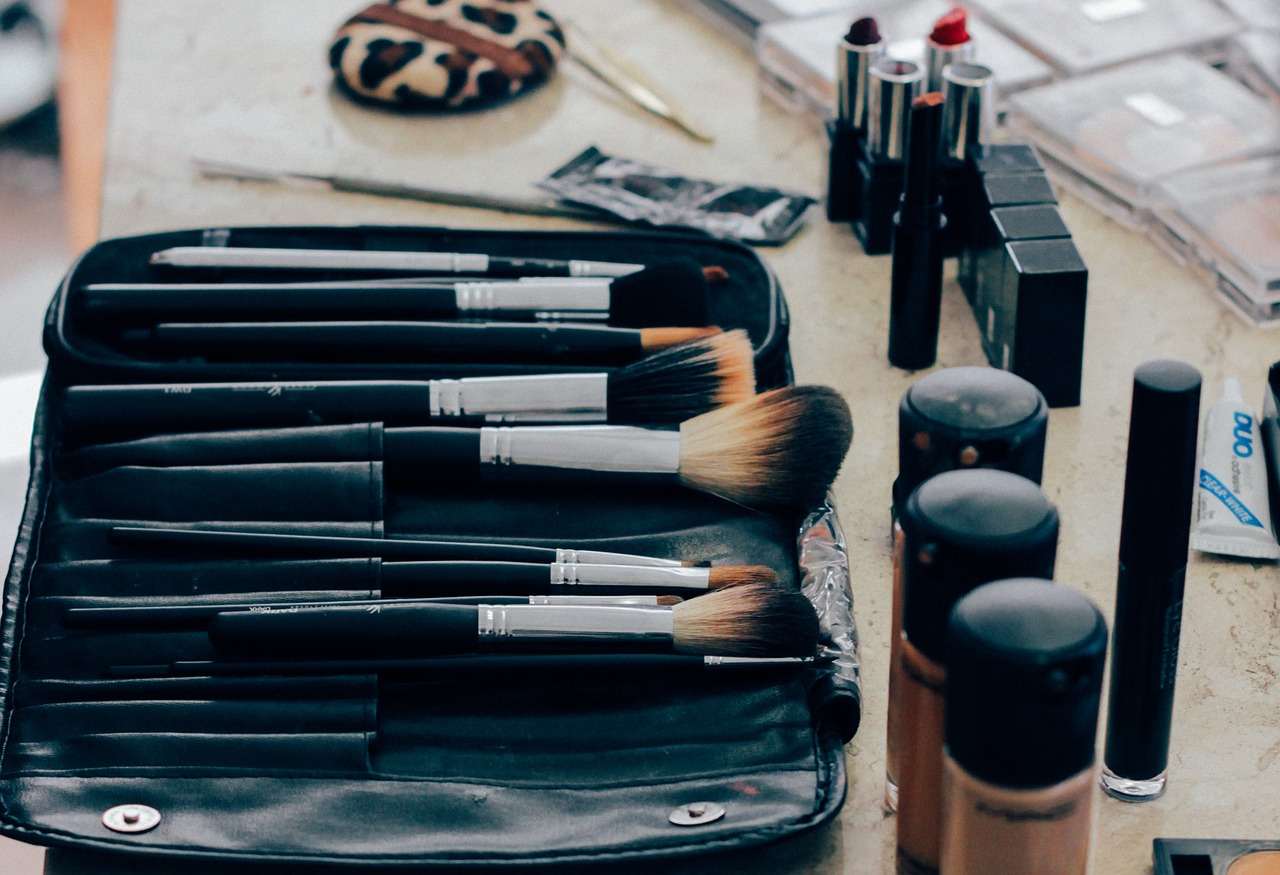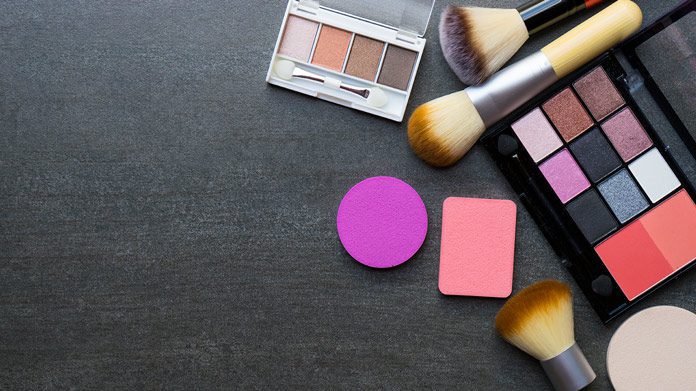To start a makeup business, you will need to create a business plan and choose the right legal structure for your company. You will also need to obtain licenses and permits, as well as open a bank account and purchase insurance. Once you have all of the necessary materials, you can start marketing your business and selling your products.
- Research the industry
- There are many different types of makeup businesses, from high-end salons to freelance artists who work out of their homes
- Consider what type of business you want to start, and what services you would like to offer
- Develop a business plan
- This will help you determine your start-up costs, as well as any ongoing expenses such as rent or utilities
- It will also give you a roadmap for growing your business over time
- Find a location
- If you’re starting a salon or retail store, you’ll need to find a suitable space to lease or purchase
- Make sure to consider the size and layout of the space, as well as its proximity to potential customers
- Purchase supplies and equipment
- Once you know what type of business you’re starting, you can begin stocking up on the supplies and equipment you’ll need to get started
- For example, if you’re starting a home-based business, you’ll need basic makeup kits and products, along with storage shelves and rolling carts to keep everything organized
- 5 marketing efforts underway before opening day
- You should already have an idea of who your target market is, but it’s important to put some effort into reaching them before your grand opening
- Try advertising in local publications or online , or even offering free consultations to friends and family members
How to Start a Makeup Business from Home
Starting a makeup business from home can be a great way to get your feet wet in the industry without a lot of overhead costs. Here are a few tips to help you get started:
1. Choose your niche.
What type of makeup do you want to specialize in? There are many different niches within the makeup industry, so it’s important to choose one that you’re passionate about. This will make it easier to market your business and attract customers who are looking for what you have to offer.
2. Create a marketing plan. How will you reach potential customers? Will you use social media, word-of-mouth, or advertising?
Be sure to create a budget for marketing so that you don’t overspend as you get your business off the ground.
3. Set up an eCommerce website. If you want to sell products online, then you’ll need to set up an eCommerce website where customers can purchase items from your virtual store.
Be sure to invest in good quality product photos and write compelling product descriptions to encourage sales.
4. Purchase supplies and inventory. Once you know what type of makeup products you want to sell, it’s time to stock up on supplies and inventory items like lipstick, foundation, eyeshadow, etc.
Shop around for wholesale prices so that you can get the best deals on products .5 Start promoting your business! Now that everything is set up , it’s time t o start promoting your new makeup business . Use the marketing channels that y ou chose earlier t o reach potential customers and let them know about all the great products and services that y our company has t o offer !
How to Start a Makeup Business With No Money
Start a Makeup Business With No Money
Are you passionate about makeup and want to start your own business, but don’t have the money to do so? Don’t worry – it is possible to start a makeup business with little to no capital.
Here are some tips on how to get started:
1. Start small and build up gradually. Instead of trying to launch a full-fledged business from the get-go, start small and scale up as you earn more revenue.
For example, you could start by doing freelance work or working out of your home before eventually expanding into a brick-and-mortar location.
2. Use social media to your advantage. Social media platforms like Instagram and YouTube are great ways to reach potential customers for free.
Use these platforms to showcase your work, build up a following, and drive traffic to your website or brick-and-mortar location.
3. Focus on niche markets. When starting out, it can be helpful to focus on servicing specific markets or niches that you’re particularly passionate about or knowledgeable in (e.g., bridal makeup, special effects makeup).
This will help you stand out from the competition and attract clients who are willing to pay premium prices for your services.
4 Consider partnering with existing businesses . If you don’t have the money to launch your own standalone business, consider partnering with an existing salon or spa that’s looking to offer its clients additional services.
How Much Does It Cost to Start a Makeup Line
It’s no secret that the beauty industry is a multi-billion dollar business. In fact, it’s estimated that the global cosmetics market will be worth $863.73 billion by 2024! So, if you’re thinking about starting your own makeup line, you could be onto a very lucrative business venture.
But of course, as with any business, there are start-up costs involved. So, how much does it cost to start a makeup line?
The answer to this question will vary depending on a number of factors, including the size and scope of your product range, whether you plan to manufacture your own products or outsource production, and how much marketing and advertising you plan to do.
However, according to one estimate, it could cost as little as $20,000 to start a small indie makeup brand – or upwards of $500,000 for a more established name brand.
Of course, the best way to get an accurate idea of start-up costs for your particular makeup line would be to speak with some experienced industry professionals. They’ll be able to give you tailored advice based on your unique business plans.
But in the meantime, here’s a rough guide to some of the main costs involved in starting a makeup line…
Product Development: If you’re planning on manufacturing your own products (as opposed to private labeling), then you’ll need to factor in costs for ingredient sourcing, packaging design and prototyping. These development costs can range from around $5,000 – $50,000+.
Outsourced Manufacturing: Alternatively, if you’re outsourcing production of your products (i.e., working with cosmetic contract manufacturers), then your development costs will be lower – but you’ll still need cover initial set-up fees charged by the manufacturer (which can range from $1k-$10k+). You may also need help with things like formulation development and stability testing – which can add additional professional fees onto your bill. Regulatory Compliance: All cosmetics companies must comply with FDA regulations – which includes registeringyour facility and products with the FDA ($225 per registration) , submitting labels for approval and following Good Manufacturing Practices .
Depending on the complexityof your product formulations , regulatory compliance can cost anywhere from$2k-$20k+.
Branding & Marketing: Of course , no matter how greatyour products are , they won’t sell themselves !
Makeup Business Ideas
There are a lot of business ideas out there for aspiring makeup artists. Whether you want to start your own freelance business or open up a brick-and-mortar salon, there are plenty of opportunities to make your mark in the beauty industry. Here are just a few ideas to get you started:
1. Start a Freelance Makeup Business
One of the great things about being a makeup artist is that you can easily start your own freelance business. All you need is a portfolio of your work, and you can start marketing yourself to potential clients.
You can build up your clientele by word-of-mouth, online marketing, or even by setting up a booth at local events like fairs and festivals.
2. Open Up a Makeup Studio or Salon
If you’re looking for something with more stability, then opening up your own studio or salon might be the right choice for you.
This will require some initial investment to get started, but it can be a very rewarding way to build your career in the beauty industry. You’ll be able to create your own unique space where clients can come to relax and feel pampered. Plus, having your own studio or salon will give you more control over pricing, services offered, and other aspects of running your business.
Small Makeup Business
If you’re thinking about starting a small makeup business, there are a few things you need to know. First, you’ll need to decide what type of products you want to sell. There are many different types of makeup on the market, so it’s important to choose a niche that you’re passionate about.
Once you’ve decided on the products you want to sell, it’s time to start marketing your business. Creating a strong online presence is essential for any small business, and this is especially true for makeup businesses. Make sure your website is professional and easy to navigate, and be sure to populate it with high-quality product photos and descriptions.
In addition to your website, you’ll also need an active social media presence. Platforms like Instagram and YouTube are great places to connect with potential customers and show off your products. Finally, don’t forget the basics like creating business cards and flyers that you can distribute in your local community.
By following these tips, you’ll be on your way to success as a small makeup business owner!
Makeup Businesses
Makeup businesses are on the rise, and it’s no wonder! With the ever-growing popularity of social media and the increasing pressure to look perfect, more and more people are turning to makeup for a boost of confidence.
If you’re thinking about starting a makeup business, there are a few things you should keep in mind.
First, you need to have a strong understanding of the different products available and how to use them. You also need to be up-to-date on the latest trends and techniques. Additionally, it’s important to build relationships with other professionals in the industry, such as hair stylists and photographers.
And last but not least, always put your client’s needs first!
There are many different ways to run a successful makeup business. For example, you could start a mobile business where you travel to clients’ homes or offices to provide services.
Or, you could open a brick-and-mortar salon or spa. Whichever route you decide to take, make sure you do your research and create a solid business plan before taking the plunge!
Makeup Business Plan
Starting your own makeup business can be a very exciting and rewarding experience. However, it is important to have a well thought out business plan in place before you get started. Here are some things to consider when creating your makeup business plan:
1. What type of products will you offer? Will you specialize in a certain type of makeup or offer a variety of products?
2. Who is your target market?
Knowing who you want to sell your products to will help you determine what types of products to offer and how to market your business.
3. How will you generate sales? Will you sell online, through brick-and-mortar retail stores, or both?
4. How much money do you need to get started? This will help you determine your start-up costs and how much money you need to raise from investors (if any).
5. What are your long-term goals for the business?
Do you want to build a nationally recognized brand or stay small and local?
How to Start a Makeup Business Online
If you love makeup and want to start your own business, there are a few things you need to do to get started. First, you need to create a website and social media accounts. You also need to develop a strong branding strategy.
And finally, you need to create products that people will love.
Creating a website is the first step in starting your own makeup business online. This is where potential customers will go to learn more about your products and services.
Make sure your website is professional and easy to navigate. Include clear photos of your products and make it easy for visitors to purchase items from your site.
Next, you need to create social media accounts for your business.
This is where you’ll interact with potential and current customers. Share photos of your products, special offers, and helpful tips on how to use makeup. Be sure to respond quickly when customers reach out with questions or concerns.
Developing a strong branding strategy is essential for any business, but it’s especially important when starting a makeup business online. Your brand should be unique and instantly recognizable. Use consistent colors, fonts, and imagery across all of your marketing materials—from your website to your social media posts—to create a cohesive look that represents what your company is all about.
And finally, no makeup business can succeed without great products! Spend time developing formulations that are high-quality and meet the needs of your target market. Create packaging that’s eye-catching and reflects the style of your brand .
Pay attention to trends in the industry so you can always offer the latest must-have items .

Credit: www.pointfranchise.co.uk
How Much Money Do You Need to Start a Makeup Business?
This is a great question and one that I get asked a lot. The answer really depends on what type of makeup business you want to start. If you want to start a high-end makeup line, then you will need quite a bit of money to get started.
However, if you are just starting out and want to sell some homemade products or provide services, then you can get started with much less money.
In general, you will need money for supplies, marketing, and website development (if you plan to sell online). For supplies, it really depends on what type of products you want to make/sell.
If you are selling all-natural products, then the cost of ingredients may be higher than if you were selling conventional products. You will also need packaging materials and labels. Marketing costs can vary widely depending on how big or small your budget is.
And finally, website development can be costly if you hire someone to build it for you; however, there are many platforms now that allow you to create a professional website without spending a lot of money (or any money).
So in summary, the amount of money needed to start a makeup business really varies depending on the type of business and your specific goals/plans. But with some research and planning, it is possible to start a successful makeup business on a shoestring budget!
How Do I Start a Makeup Business for Beginners?
Assuming you would like a blog post discussing how to start a makeup business:
“How do I start a makeup business for beginners?”
There are many ways to start a makeup business, but for beginners, these steps are essential: first, research the industry and find out what type of products are in demand and what is currently trending.
Second, create a detailed business plan that includes your target market, financial projections, and marketing strategy. Third, obtain the necessary licenses and permits from your local government. Fourth, find suppliers for your products and negotiate terms with them.
Fifth, open up an online store or brick-and-mortar location (or both!) and begin selling your products. Finally, continue to market your business and build relationships with customers to ensure continued success.
Is Makeup a Good Business to Start?
Assuming you would like a blog post discussing the feasibility of starting a makeup business:
Yes, makeup is a good business to start. The global cosmetics market is expected to reach $379.8 billion by 2022, and the U.S. makeup industry is worth an estimated $48 billion annually.
There are several reasons why starting a makeup business can be lucrative. First, there is a lot of room for growth in the industry. The global cosmetics market is growing at a compound annual growth rate (CAGR) of 6.7 percent, and the U.S. makeup industry grew by 7 percent in 2017 alone.
Second, there are low barriers to entry in the makeup industry. You don’t need expensive equipment or facilities to get started – all you need is some basic supplies and a good marketing strategy.
Third, customers are willing to spend money on quality products and services.
In fact, they’re often willing to pay premium prices for luxury items like designer handbags and high-end cosmetics.
How Do I Start a Small Cosmetic Business?
There are a few things to consider when starting a small cosmetic business. The first is finding a niche market. What kind of cosmetics do you want to sell?
There are many options available, from skincare and makeup to haircare and nail products. Once you know what type of products you want to sell, research the competition. Who else is selling similar products?
How can you make your products stand out from the rest?
Next, develop a business plan. This will help you determine your start-up costs, set financial goals, and create marketing and sales strategies.
If you need help getting started, there are plenty of resources available online or through your local Small Business Administration office.
Once you have all of the above figured out, it’s time to get started! Begin by sourcing suppliers for your raw materials and packaging.
Next, create prototypes of your products and test them out on friends and family members. Once you’re happy with the results, start marketing your products online or through brick-and-mortar retailers. And last but not least, always remember to stay compliant with Cosmetic Good Manufacturing Practices (CGMPs).
By following these guidelines, you’ll be well on your way to success in the cosmetic industry!
How To Launch A Makeup Brand & Sell Online: The Ultimate Guide
Conclusion
In order to start a makeup business, there are a few things you need to do. First, you need to choose what type of products you want to sell. There are many different options available, so it is important to research the market and find out what is popular.
Once you have decided on the products you want to sell, you need to create a brand identity. This includes choosing a name for your business, creating a logo, and developing marketing materials. Next, you need to find suppliers for your products and set up an e-commerce website.
Finally, you need to spread the word about your business through social media and other channels.



